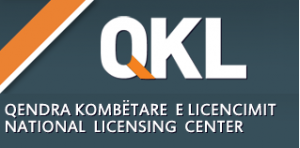THE ALBANIAN CUSTOMS SYSTEM
THE ALBANIAN CUSTOMS SYSTEM
Customs legislation and administration
The General Directorate of Customs (GDC) is the institution responsible for the management of customs in the Republic of Albania. The GD Customs is under the Ministry of Finance and conducts its activity pursuant to the Law No.8449 dated 27.01.1999 “Customs Code of the Republic of Albania” and its amendments.
More info about Albanian customs can be found in www.dogana.gov.al.
Custom Tariffs
Albania is a member of the World Trade Organization since September 2000. By joining the WTO, Albania had to align its trade legislation with international and WTO rules.
Custom tariffs apply on the Combined Nomenclature of Classification of Goods. This Classification is in compliance with the European Community Combined Nomenclature of Classification of goods. The tariff system is very simple. The most-favored-nation tariff system applicable is: 0%, 2%, 5%, 6%, 10% and 15%.
Under FTA-s, Albania applies Preferential import tariffs for CEFTA parties, EFTA parties, EU Member States and Turkey. In case of industrial products (chapters 25-97 of Classification of Goods Nomenclature) the tariff is 0%, while for agricultural products they are, as set out in the relevant agreements.
Favorable Tariff Treatment – FTT, is also applied. It provides reduction or relief from import duties chargeable by reason of nature of goods.
ALBANIAN CUSTOMS REGIMES
1. Placing in free circulation regime gives. Goods placed in free circulation, with a level of reduction or zero import duty, due to their particular/special use, will remain under customs supervision. This supervision shall end when the conditions for the level of reduction or zero rate of duty cease to exist, when goods are exported or destroyed, or when goods are used for purposes other than those provided for the implementation of level reduction or zero rate of duty, provided that the relevant obligations are paid.
2. The Temporary Permit Regime enables into the customs territory of the Republic of Albania, the total or partial relief from import duties and without their being subject to commercial policy measures, to the non-Albanian goods intended for re-export without having undergone any change except depreciation due to their use.
3. Inward processing Regime refers to a customs procedure where goods imported to Albania, or of Albanian origin, are manufactured or processed and then re-exported from Albania in the form of compensating product. The inward processing regimes allow producers to import raw materials or semi-processed products, exempt fully or partially from customs duties, and to manufacture/process and re-export the finished compensating products. The original imported product may or may not be distinguishable from the finished product.
4. The outward processing regime applies to Albanian goods temporarily exported from the country for being processed outside the country and re-imported in the form of compensating products, into the territory of Albania. The re-imported compensating products will be released for free circulation fully or partially exempted from import duties.
5. The warehousing regime allows storage in a custom warehouse of:
a) Non Albanian goods not subject to custom duties,
b) Albanian goods, when the provisions in force, in cases of their warehousing in customs, require the application of measures regarding the export of these goods.
A customs warehouse may be public or private.
– Public warehouses are used to store goods by any interested person.
– Private warehouses are used to store goods by warehouse operators only.
6. Transit Regime. It refers to the circulation of goods from one customs point to another in the territory of Albania of:
a) Non Albanian goods not subject to custom duties and import duties.
b) Albanian goods subject to export procedures.
This regime can be also applied on circulation of goods to another territory in cases of :
a) a signed international agreement
b) it is accompanied by a transport document released in the territory of Albania.
7. The regime of processing of goods under customs control allows the import of non-Albanian goods exempted from custom duties; their utilization in operations that cause the change of their nature, and then placement in free circulation of the products obtained as a result of these operations, once the relevant import duties have been fulfilled.
8. Temporary admission is applied to goods that will not be released into free circulation immediately and are held temporarily in a warehouse until they are put in another customs regime. The warehouses are premises that have been approved by the Customs Authorities. The storage time in these areas shall be no more than 5 days for goods of road and railway transport and no more than 10 days for the goods of maritime transport.
Value Added Tax (VAT)
Imports
VAT is assessed, applied and paid at the moment goods enter the Albanian custom territory. The VAT rate is 20% of the taxable value.
According to the Law No.7928 dated 26.12.2007 “For VAT” as amended, the exempt from VAT is applied to:
– Import of goods placed in the transit regime.
– Import of goods declared to fall under Temporary Allowance Regime
– Import of goods in active processing
– Import of goods or services relating to the performance of exploration and development phases of petroleum operations, carried out by contractors who work for these operations.
– Import of live animals of origin, coming from different donors.
– Import of goods coming from NATO.
– Import of good of appliances that help the integration of people with disabilities in the everyday life.
The customs Code foresees the exemption of the customs duties for the returning emigrants (persons that have lived in another country for a period of not less than 12 months continuously and are coming back to Albania).
Exports
Albanian exports are exempted from VAT (VAT rate 0%).





